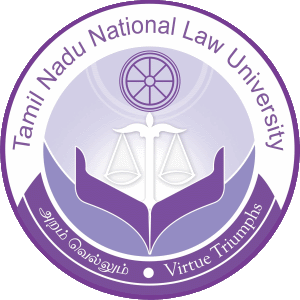
A Juris Doctor, Doctor of Jurisprudence, or Doctor of Law (JD) is a graduate-entry professional degree in law. The JD is the standard degree obtained to practice law in the United States, where there is no undergraduate professional law degree. Some jurisdictions, such as Australia, Canada and Hong Kong, offer both the JD and undergraduate qualifying law degrees.

Postgraduate education, graduate education, or graduate school consists of academic or professional degrees, certificates, diplomas, or other qualifications usually pursued by post-secondary students who have earned an undergraduate (bachelor's) degree.
An academic degree is a qualification awarded to a student upon successful completion of a course of study in higher education, usually at a college or university. These institutions often offer degrees at various levels, usually divided into undergraduate and postgraduate degrees. The most common undergraduate degree is the bachelor's degree, although some educational systems offer lower-level undergraduate degrees such as associate and foundation degrees. Common postgraduate degrees include master's degrees and doctorates.
A bachelor's degree or baccalaureate is an undergraduate academic degree awarded by colleges and universities upon completion of a course of study lasting three to six years. The two most common bachelor's degrees are the Bachelor of Arts (BA) and the Bachelor of Science. In some institutions and educational systems, certain bachelor's degrees can only be taken as graduate or postgraduate educations after a first degree has been completed, although more commonly the successful completion of a bachelor's degree is a prerequisite for further courses such as a master's or a doctorate.

Legal education is the education of individuals in the principles, practices, and theory of law. It may be undertaken for several reasons, including to provide the knowledge and skills necessary for admission to legal practice in a particular jurisdiction, to provide a greater breadth of knowledge to those working in other professions such as politics or business, to provide current lawyers with advanced training or greater specialisation, or to update lawyers on recent developments in the law.
The Postgraduate Certificate in Laws is an intensive one-year, full-time professional legal qualification programme in Hong Kong. It allows graduates to proceed to legal training in order to qualify to practice as either a barrister or a solicitor in Hong Kong. The "LL." of the abbreviation for the certificate is from the genitive plural legum. The programme is similar to the Legal Practice Course or the Bar Professional Training Course in England and Wales, or the Certificate in Legal Practice (Malaysia) in Malaysia which focuses heavily on practical and procedural issues in legal practice, unlike a first degree in law.

A law school is an institution or professional school specializing in legal education, usually involved as part of a process for becoming a judge, lawyer, or other legal professional within a given jurisdiction.

Dibrugarh University is a collegiate public state university in the Indian state of Assam. It is located at Dibrugarh, Assam, India. It was set up in 1965 under the provisions of the Dibrugarh University Act, 1965 enacted by the Assam Legislative Assembly.

Jamia Hamdard is an institute of higher education deemed to be university located in New Delhi, India. Established in 1989, it is a government-funded university and was formally inaugurated by then Indian prime minister Rajiv Gandhi. In 2019, it was awarded Institute of Eminence status by Ministry of Human Resource Development.
A Bachelor of Pharmacy is a graduate academic degree in the field of pharmacy. In many countries, this degree is a prerequisite for registration to practice as a pharmacist. Since both PharmB and PharmD are prerequisites to license in most western countries they're considered equivalent. In many western countries, the foreign graduates with BPharm, PharmB or BS Pharm practice similarly as PharmD graduates. It is analogous to MBBS vs. MD where MBBS is foreign equivalent of MD. It is training to understand the properties and impacts of medicines and developing the skills required to counsel patients about their use.

Kalinga Institute of Industrial Technology (KIIT), formerly KIIT University, is a private deemed university located in Bhubaneswar, Odisha, India. It primarily emphasizes on higher education and research in engineering and science. It offers 34 undergraduate, 32 postgraduate, 10 integrated, 11 Ph.D and 7 postdoctoral research programmes in the fields of science and engineering, medical science, management, law, film and media, humanities and yoga and sports. The admissions for B.Tech. programmes are mainly based on merit as per the results in KIITEE exam, although there are management quota seats which are filled by paying higher than normal admission fees.

The National Institute of Science Education and Research Bhubaneswar is a public research institute in Jatani, Odisha, India, under the umbrella of the Indian Department of Atomic Energy. The institute is affiliated with Homi Bhabha National Institute. Prime Minister Manmohan Singh, laid the foundation stone on August 28, 2006. Government of India earmarked an initial outlay of ₹823.19 crore (US$100 million) during the first seven years of the project, starting in September 2007. It was ranked second in the country by the Nature Index 2020.

Nagaland University is a Central University established in the state of Nagaland by an Act of Parliament by the Government of India in 1989. It is headquartered at Lumami, Zünheboto District. Two other permanent campuses are located at Meriema and Medziphema. Also there is a temporary campus in Dimapur where B. Tech courses are offered. Altogether 68 colleges are affiliated to the university with a total student population of around 24,000. Different Courses in 43 disciplines are offered at University and college levels in M.A, M.Sc, M.Com, MBA, M.Ed, M.Sc (Agri.), B.Tech, B.Sc (Agri.), LL.B, B.Ed, B.Sc, B.A, B.Com, BBA, BCA, B.Sc (Nursing) and B.Voc.

The University of Delhi-School of Open Learning (DU-SOL) is a constituent school of the University of Delhi. It was established in 1962, and offers programmes in humanities, sciences and commerce. Courses offered are under correspondence courses and continuing education policies of the university and respective government agencies.
KIIT School of Management (KSOM) is a private business school located in Bhubaneswar, Odisha, India. It was established in 1993 as the Institute of Business Administration and Training. It is a constituent institute of Kalinga Institute of Industrial Technology.
KIIT Group of Institutions is a group of institutions run by KIIT Education Society in Bhubaneswar, Odisha, India. It includes KIIT University, Kalinga Institute of Medical Sciences, Kalinga Institute of Social Sciences and other institutes.
Legal education in India generally refers to the education of lawyers before entry into practice. Legal education in India is offered at different levels by the traditional universities and the specialised law universities and schools only after completion of an undergraduate degree or as an integrated degree.

Tamil Nadu National Law University (TNNLU), formerly Tamil Nadu National Law School (TNNLS), is a National Law University. Admissions to the university are done on the basis of the Common Law Admission Test. It was established in 2012 by the Government of Tamil Nadu through Tamil Nadu National Law School Act, 2012, with an initial contribution of ₹100 crore .The Act was amended in the year 2018 and the word 'School' was replaced by the word ' University'.
University School of Law & Legal Studies is one of the constituent schools of Guru Gobind Singh Indraprastha University. Established in 2001, it is an institution dedicated to law and was the first state government law school in Delhi. It is constantly rated in the top 15 government law schools in India offering a 5-year course. It is also rated in the top five law schools in Delhi NCR. The acceptance rate of USLLS is incredibly low, given the fewer seats and large number of applicants. USLLS was also ranked 12 in the National Institutional Ranking Framework, Ministry of Education, Government of India.
Ramaiah University of Applied Sciences (RUAS) is a UGC approved Private University in India.It was created by an act in the State of Karnataka, India and was established in December 2013.












